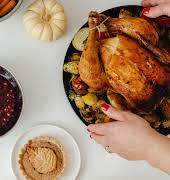
By Niamh Ennis
09th Oct 2021
09th Oct 2021
"Don’t tell the little voice in the back of your head to be quiet, give it a little room to grow, and try to find an environment for it to grow in" – Reese Witherspoon.
I can truthfully think of far too many occasions where I ignored my gut instinct and opted for what I believed to be the sensible option. I know now that I would have been infinitely better off had I paid attention instead to what I was feeling inside. It’s easy to observe this with the benefit of hindsight, but it led me to try to recognise the signs when it comes to what our gut feelings are telling us.
What gets in our way from paying attention to our gut instinct? Unsurprisingly, it is our inability to listen, our capacity to think we are just too busy to indulge in some quiet time or some navel-gazing.
It is much easier to get caught up in the business of doing, to keep running, to stay distracted and in turn make decisions on the fly, while professing to use our intellect and judgement. We find this much easier because it means we can avoid having to deal with the truth, and so we hide behind our interpretation of it.
What do we mean when we talk about our gut instinct? The most common understanding of these words refers to your inner self, your true self; the self that always knows what’s best for you and what is right for you. That inner self and inner voice that is constantly trying to protect you. It’s the part of you that knows best just what is best for you. And before you dismiss this, let me tell you that we all have it.
Why then, do we not pay attention to it, why don’t we give it the recognition it deserves for being the best sounding board we have access to? We ignore our gut because often we are not ready to deal with what it’s telling us. You know those red flags you see when you first meet someone? When you know by that feeling in your stomach that something isn’t quite right, but you want it to be. Deep down you know, but you don’t want to, so you ignore it and are left dealing with repercussions and regrets further down the line.
The old saying “trust your gut” refers to trusting these feelings of intuition, often as a way to stay true to yourself. Paying attention and following your instinct can guide you toward the best path for you. And yet, you might question why you should put so much trust in a feeling, an instinct, that you can’t explain.
Would you not be better at sticking to logic and reason and using them to help you make better decisions? Truthfully, not always. Science suggests that accessing your intuition can in fact be a really useful tool in certain situations. It appears that those gut feelings do mean something, and they can often help you make some really good choices.
Have you ever experienced that horrible nagging feeling of unease or discomfort about a situation? Have you found yourself suddenly feeling suspicious about someone you might have just met but don’t know why? Do you recognise that intense feeling of relief or calmness when you have had to make a difficult decision, telling you that you’ve done the right thing?
Your gut feelings will also conjure up a wide range of sensations, some that will feel similar to fear or anxiety. Some people will describe their gut feelings as a quiet ‘internal’ voice, but others will say that they “hear” their gut talking in other ways. Although gut feelings appear to come out of nowhere, they simply aren’t random. They don’t actually originate in your gut. When you feel worried, anxious or convinced that something’s wrong, you might experience stomach twinges or nausea. That’s where the name “gut feeling” comes from!
Gut feelings tend to emerge quite suddenly, although they aren’t always compelling or overwhelming. You might experience them as a faint whisper or the slightest sense of uneasiness, but you could also experience a visceral reaction, so strong that you can’t possibly imagine ignoring them. The secret to recognising your gut instinct, and to understand what it is telling you, is to slow down and allow it space to land.
It’s why for some people they may feel better equipped to make decisions when they are out for a walk, or in the gym, or in the shower – anywhere their mind gets a chance to stop racing. Sitting with the information you have, allowing it to integrate, and then tuning in to what feels right, is the very best way to listen to your instinct and pay attention to those gut feelings.
In the same way that over-thinking leads to stress; not rushing and silencing the noise around you will provide you with the best environment to hear just what it is your inner voice; your gut instinct or your intuition is trying to communicate to you.
When you don’t know what to do, do nothing.
If something feels right then trust that it is. Equally, if something feels off, regardless of the facts telling you otherwise then be confident enough to trust the feeling. In the same way that being afraid of fire stops you from sticking your hand in it, you need to develop a sense of trust that you have with your own inner voice. It too is trying to protect you, always.
I have far too many examples of times when I ignored my gut feelings and regretted it, but now I’ve learned to trust the small voice of intuition so much more. In fact, those times I make the biggest mistakes now is when I don’t listen to it.
Niamh Ennis is Ireland’s leading Empowerment and Transformation Coach, Founder of The RESET for Change 3 Month 1:1 Private Coaching Programme and host of The TOUGH LOVE ENERGY™ Podcast. She’s known for her practical solutions to life’s challenges and her ability to tell you not what you want to hear but always what you need. For more see niamhennis.com or find her on Instagram @1niamhennis.























